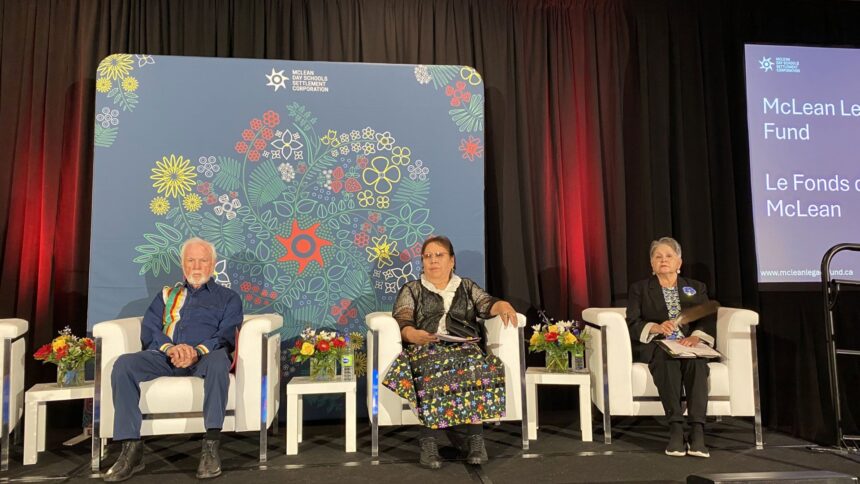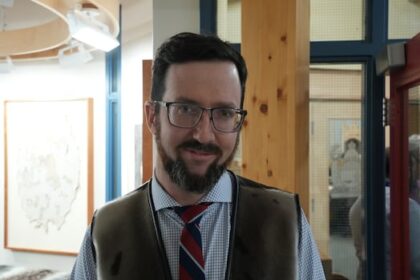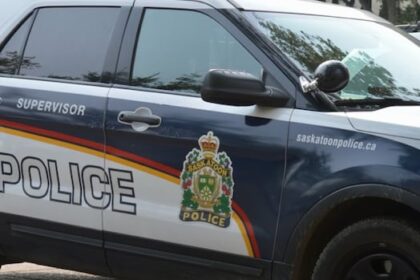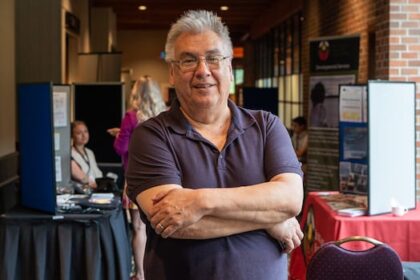An estimated 200,000 Indian day school survivors will soon be able to see the benefits of $200 million in funding as part of the McLean Legacy Fund. The fund is named after Garry McLean, a day school survivor from the Manitoba Lake First Nation, who was the lead plaintiff in a class action lawsuit. “The McLean Legacy fund was created to support healing and wellness, language and culture preservation, commemoration and truth-telling for Survivors of Federal Indian Day Schools and their families,” according to the fund’s website. The money is part of a larger $1.47 billion class action settlement reached with Ottawa in 2018. The legacy fund, first announced in 2021, was officially launched in Ottawa on Monday. Algonguin Elder Claudette Commanda, CEO of the McLean Day Schools Settlement Corporation (MDSSC), she said the launch is a long time coming but board members wanted to make sure it was done properly. “We want to move forward,” she said. “In particular, we’re looking for healing. That’s so important but at the same time it was important for us as the McLean Day School board to take our time. To take our time to do this right, to do it in a good way and we are a firm believer in ensuring that the vision and legacy of Gary McLean was all about justice and survivors – the survivors’ voices.” The Canadian government and churches ran day schools. Unlike residential schools, students stayed in their communities and went home in the evenings. Day school survivors were not included in the Indian Residential School Agreement, although sexual, physical and verbal abuse did take place. The fund will provide four streams of funding targeted at survivor communities which includes: Up to $250,000 per year for four years for healing and wellness. Up to $100,000 per year for four years for language and culture. A one-time payment of $100,000 spread over four years for commemoration. A one-time payment of $100,000 spread over four years for truth telling. Each community is also eligible for a one-time payment of $25,000 to set up survivor committees. Blackfoot Elder and MDSSC board member Gloria Wells said it is important communities will be able to determine how funding is spent. “Government has put out a lot of programs for everybody to try and get that self-help and healing,” she said. “But it has not worked for our people. We need to come from our own – who we are – and that’s why I strongly believe if that ceremony and our language and our culture will be the ones to help us.” McLean, who passed away in 2019, never got to see the end result of his continuous lobbying for day school survivors. However, Mi’kmaq Elder Roger Augustine, another board member, said McLean is never too far from his thoughts. “Whenever I feel that I’ve moved on,” he said. “I look at the crowd like this and he’d (McLean) be sitting there waving and I’m sure most of you could see that. The smiling face, the friendly face, a good person, a good man and we lost him.” Commanda added although McLean may be gone, he will definitely never be forgotten. “He was such a loving human being,” she said. “Very loving heart and soul. He was very knowledge and really deeply cared for survivors. Cared for all the communities right across Canada.” Communities can apply for funding from July 7 to the end of September 2025. With files from Kathleen Martens Continue Reading
$200M McLean Legacy Fund officially launches in support of Indian day school survivors

Leave a Comment










